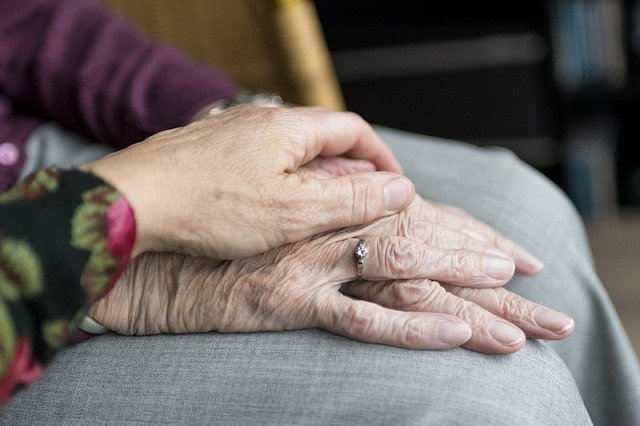
Getting older is an inevitable part of life, and often this results in not being able to do the things you used to, or at least not as easily as you once could. It’s something that everyone will have to face at one time or another, and you may even find yourself starting to think about how to help your elderly parents or other relatives live comfortably and safely. Whether they are becoming restricted in their mobility, struggling with memory loss, or other healthcare issues, it can be worrying and stressful thinking about them living alone. This is why it’s important to explore different options for elderly care to find the right support for your loved ones. Below are some examples of the different routes you can choose from when it comes to finding care for your elderly relatives.
Move Them in With You
For a lot of families, the idea of putting their parents or another elderly relative to care is difficult, and you might prefer to have them come and live with you instead. This can be a great solution; however, you must think carefully about how this will alter your lifestyle. You may have to make extra room in your home to accommodate them or install things like a stair-lift or support bars to help them get around your property easier. You will also have to calculate the additional costs this will incur for you, like buying extra food and increased energy usage. More importantly, you will need to think about how you can physically care for your relative properly and how well you can cope with that. You can hire help for this, but again, it is another expense that will need your consideration.
You’ll also need to think about how this might impact other members of your household, such as your partner or any children you might have. If everyone agrees that the best thing to do is have your elderly relative move in with you, this is something you can think about, provided you have enough resources to give them the quality care they need now and what they might need in the future.
Home Modifications
For elderly relatives that do not want to leave their homes and don’t require full-time medical care, simply making some modifications to their house could be a good way to help put your mind at ease. If they are struggling with their mobility, stair-lifts, and support bars, as mentioned above, could help. They may also need wheelchair ramps to be installed at the entryways of their property if they require the use of one. Shower/bath seats are another thing to consider, as this will reduce the risk of them slipping or losing their balance as they wash.
If your relative is completely against the idea of leaving their home but still requires medical care and assistance with their daily living, though, you could consider hiring a carer to come and visit them at home. They can help to clothe and bathe your relative if they need help with that, as well as do their grocery shopping, take them for walks or drive them to appointments. Qualified nurses can also visit them at home and give them their medications each day and check their general health. Some carers will even move in with your relative full-time if they need round the clock care. This option allows your relative to remain in the comfort of their home, but you can rest easy knowing they have a professional to look after them when you can’t.
Personal Alarms
In addition to the modifications listed above, getting your elderly relative a personal alarm is a good idea. In the event they have a fall or something else happens they need help with, they can alert you and/or medical professionals to come to their aid. They should carry these alarms on their person at all times, either around their wrist or their necks. It might not be the most fashionable accessory, but it will give both you and them peace of mind that they can get help quickly, especially if they live alone.
Retirement Community
If your elderly relative is open to the idea of moving somewhere new, perhaps a retirement community is a good option for them. If your relative is still able to do simple daily tasks independently and is in reasonably good health, they could thrive at a retirement home. These communities offer private apartments or houses, often with recreational activities available on sites such as swimming pools, exercise classes, clubs, and some even organize day excursions for residents. If your relative lives alone or simply wants to meet new people of a similar age, this could be a wonderful opportunity for them to do so. All of the residents are usually 55+ in retirement communities.
Assisted Living
Assisted living facilities are similar to retirement homes, but they offer more medical and personal care to residents. For seniors that need help with daily tasks like washing and grooming, cleaning, cooking, and even running errands, this is probably a better fit. They can offer the same things as retirement communities like organized exercise classes, beauty salons, and other social events, which also makes them great for those looking to meet new people. This assisted living Encino community is a great example of what is on offer at places like this. They will also help with medication management and will have trained nurses on-site 24/7.
Memory Care
For senior relatives that are suffering from dementia or Alzheimer’s disease, finding a specialist memory care home will be the necessary route. Although they might be able to remain in their homes for some time with specialists visiting them if their condition worsens, living in a memory care facility will help to keep them safe. They will be able to take part in social activities with other residents, and there will be 24-hour care on-site, as well as help with daily tasks just like in an assisted living facility.
It can be very hard to decide what kind of care is best for your senior relatives, but if they are struggling to live alone or require routine medical care, it’s important to find the right support. Think about the elderly care options above and which one sounds best for your elderly relative.
















